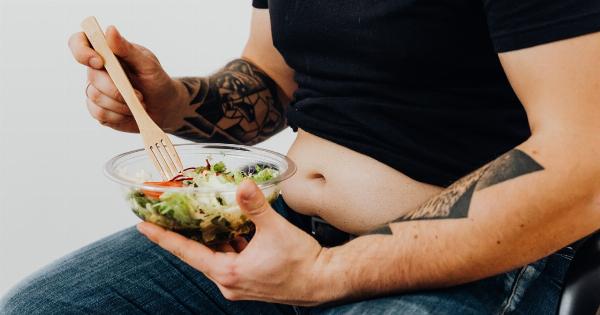If you’re trying to lose weight, one of the most important things you can do is eat less. Unfortunately, that’s easier said than done.
It can be challenging to resist temptation and stick to a diet plan that requires you to cut back on portion sizes and limit your intake of your favorite foods.
Fortunately, there are some tricks you can use to help you eat less without even noticing. By making simple changes to your eating habits, you can reduce your calorie intake without feeling deprived or hungry.
Here are some tried-and-true tips to get you started.
1. Drink water before meals
One of the easiest ways to reduce your calorie intake is to drink a glass of water before each meal. Not only will this help you feel fuller, but it can also help you stay hydrated throughout the day.
In one study, participants who drank water before a meal lost an average of 4.3 pounds over a 12-week period. Another study found that drinking water before breakfast reduced calorie intake by up to 13%.
2. Use smaller plates
Believe it or not, the size of your plate can have a big impact on how much you eat. When you use a larger plate, you’re more likely to serve yourself larger portions, which can lead to overeating and weight gain.
By using a smaller plate, you can trick your brain into thinking you’re eating more food than you actually are. This can help you eat less without feeling like you’re depriving yourself.
3. Eat slowly and savor your food
When you eat too quickly, you’re more likely to overeat because your brain doesn’t have enough time to register that you’re full.
By eating slowly and chewing your food thoroughly, you can give your brain time to catch up and tell you when you’ve had enough.
Additionally, taking the time to savor your food can help you enjoy it more and feel more satisfied, so you’re less likely to reach for a second helping.
4. Choose high-fiber foods
Foods that are high in fiber can help you feel fuller for longer, which can reduce your overall calorie intake. Additionally, high-fiber foods are often less calorie-dense, so you can eat more of them without consuming too many calories.
Some examples of high-fiber foods include fruits, vegetables, whole grains, and legumes.
5. Use smaller utensils
Similar to using smaller plates, using smaller utensils can help you eat less without feeling deprived.
When you use a smaller fork or spoon, you’re more likely to take smaller bites, which can make your meal last longer and help you feel more satisfied.
6. Limit distractions at mealtime
When you’re distracted while eating, you’re more likely to overeat. Whether you’re watching TV, scrolling through social media, or working at your desk, it’s important to minimize distractions when you’re eating.
Instead, focus your attention on your meal and enjoy the flavors and textures of your food. By being more mindful when you eat, you’re less likely to overindulge and more likely to feel satisfied with smaller portions.
7. Plan your meals in advance
One of the biggest challenges when it comes to eating less is avoiding temptation. When you’re hungry and don’t have anything prepared, it’s easy to reach for a quick and often unhealthy snack.
By planning your meals in advance, you can ensure that you have healthy, satisfying options available when hunger strikes.
Whether you prep meals for the week or simply make a list of healthy snack options, having a plan can help you avoid overeating and stay on track with your weight loss goals.
8. Keep healthy snacks on hand
Speaking of healthy snack options, it’s important to keep them readily available so you’re not tempted to reach for less healthy options.
Some good snack options include fresh fruits and vegetables, nuts and seeds, and low-fat dairy products.
By keeping healthy snacks nearby, you can satisfy your hunger without consuming too many calories.
9. Use spices and herbs to add flavor
If you’re used to eating high-calorie, high-fat foods, you may be hesitant to switch to healthier options that don’t taste as good. Fortunately, there are ways to add flavor to your meals without adding a lot of calories.
Spices and herbs are a great way to add flavor and depth to your meals without adding a lot of calories. Experiment with different seasoning blends and try new recipes to keep your taste buds interested.
10. Don’t deprive yourself
Finally, it’s important to remember that depriving yourself of your favorite foods can be a recipe for disaster. When you feel deprived, you’re more likely to binge on unhealthy or high-calorie foods.
Instead of cutting out your favorite foods altogether, try incorporating them into your diet in moderation. By allowing yourself an occasional treat, you can satisfy your cravings without derailing your weight loss goals.






























